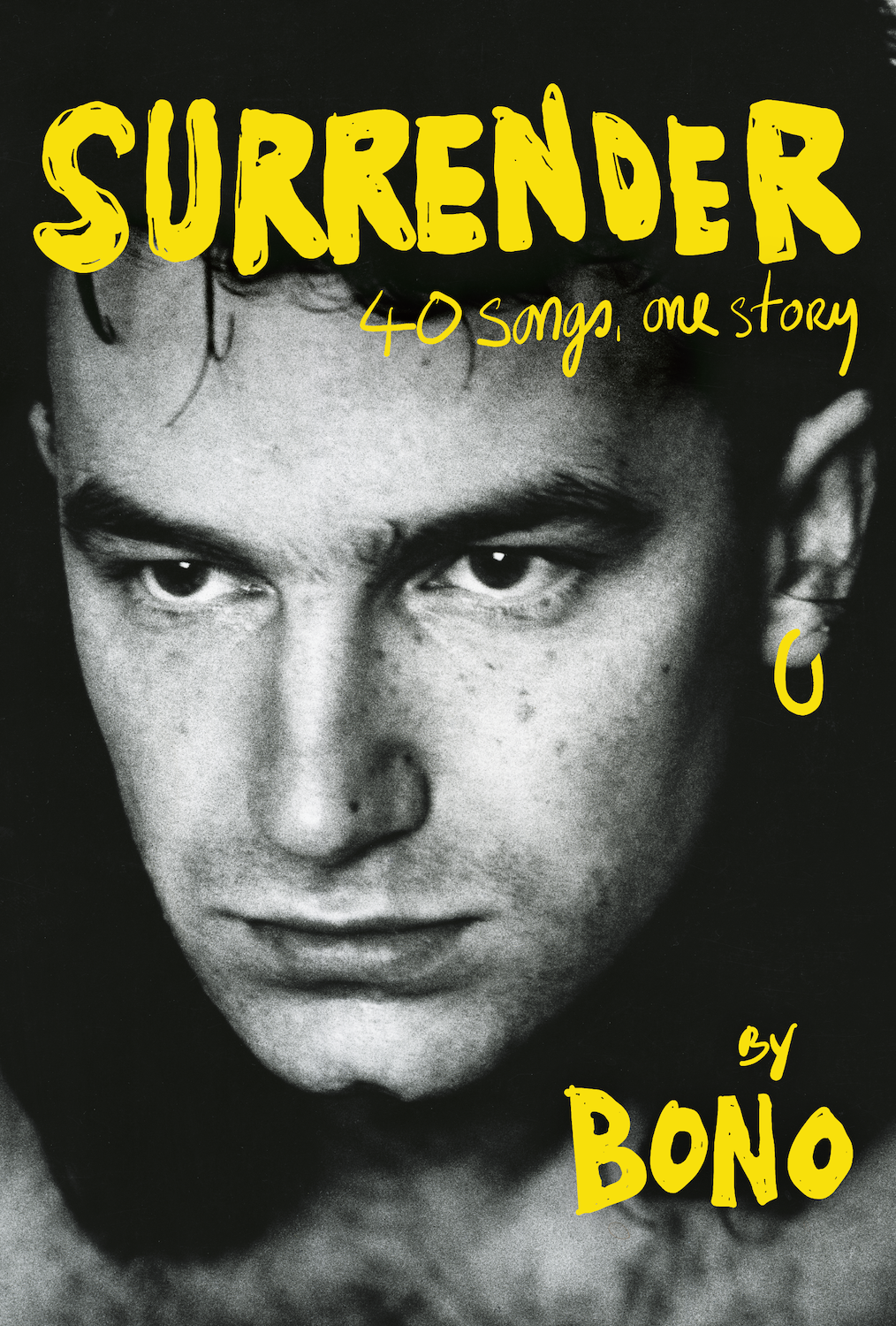Surrender
U2’s Joshua Tree tour, Glendale, AZ, Sept. 19, 2017. Photo by yours truly.
Last month, I shared a couple of literary credos I live by, including this one: “If a book I want to read is written by an author from Ireland, and if the audiobook is narrated by that same author, in his or her Irish brogue, then it is a crime not to listen to the audiobook. OK, not a crime, maybe, but a mistake.”
The day before Thanksgiving, I was fortunate enough to snag one of the Tempe Public Library’s physical copies of Bono’s memoir Surrender: 40 Songs, One Story (Knopf). But you better believe I also listened to the audiobook. And I’m so glad I did.
Much of the story of Bono and U2 is a matter of public record: how the band got together, the musical and cultural influences that inspired their best-known songs, how faith and activism have always been at play. But Bono has a knack for telling it slant, and he has a lot of fun doing just that.
Sure, there’s all the stuff in this memoir you’d expect from someone who’s lived a charmed life of glitz. And yeah, there’s quite a bit of navel gazing. But shallow, this book is not. Rather, I see it standing in the long Augustinian line of spiritual memoir. Bono’s Confessions, you might call it; the story of a spiritually hungry man who still hasn’t found what he’s looking for:
“I’d always be first up when there was an altar call, the ‘come to Jesus’ moment. I still am. If I was in a café right now and someone said, ‘Stand up if you’re ready to give your life to Jesus,’ I’d be the first to my feet. I took Jesus with me everywhere and I still do. I’ve never left Jesus out of the most banal or profane actions of my life” (p. 48).
Later on, in a passage that includes an excerpt from I Corinthians 13 in The Message translation as well as some lovely ruminations on the life of the apostle Paul (“the teacher who finds comfort in chaos and peace in conflict”), Bono describes his own journey of faith and doubt, of learning to “make peace with my own uncertainty.” In the face of so much that would contradict belief, he asks, “So where is God?”
“Well, while I hope God is with those of us who live such comfortable lives, I know God is with the poorest and most vulnerable. In the slums and cardboard boxes where the poor have to play house. In the doorways as we step over the divine on our way to work. In the silence of a mother who has unknowingly infected her child with a virus that will end both of their lives. God is in the cries heard under the rubble of war, in the bare hands digging for air. God is with the terrorized. At sea with the desperate, clinging onto drowning dreams. God is with the refugee. I hear his only son was one. God is with the poor and the vulnerable, and God is with us if we are with them” (p. 531).
Indeed, as Jesus himself says in one of his more haunting parables, “The King will reply, ‘Truly I tell you, whatever you did for one of the least of these brothers and sisters of mine, you did for me’” (Matt. 25:40, NIV).
Yes: “God is with us if we are with them.”
You aren’t likely to find Surrender on the shelves of a Christian bookstore (notable exceptions not withstanding). For one thing, Irish troubadours tend to have salty vocabularies. It’s not exactly a book fit for the whole family, and there’s some theological messiness involved. But make no mistake. This is a memoir by a man who knows his Bible, loves Jesus, and has a hungry heart for what matters most. Just like Augustine. Maybe, just maybe, a bit like you and me.

